Breaking Down The Data

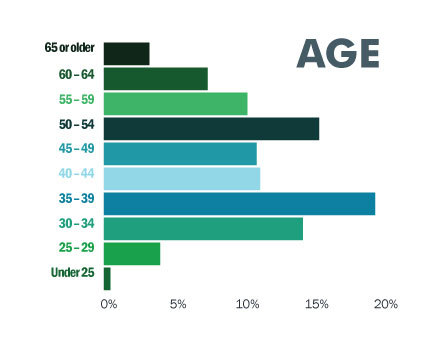
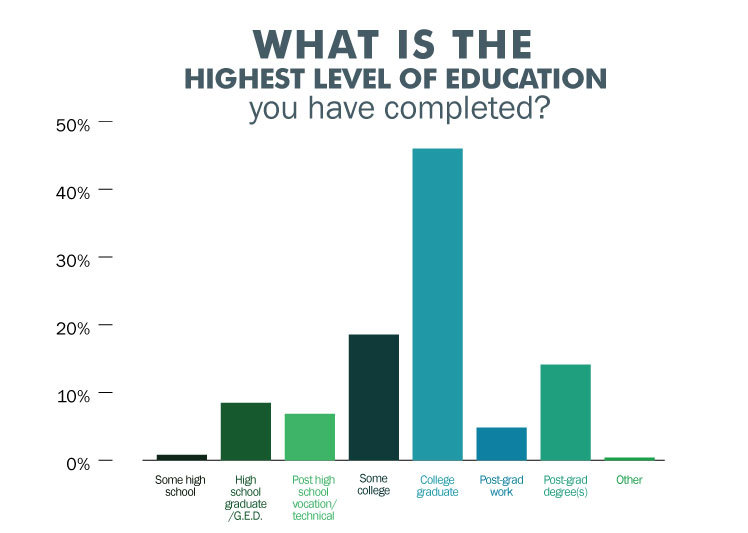
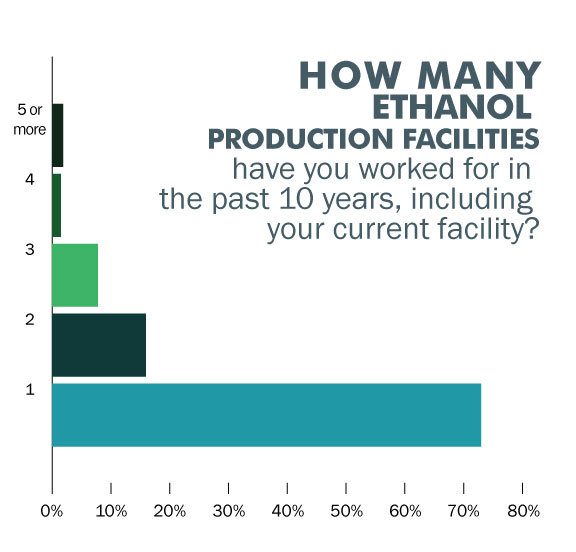
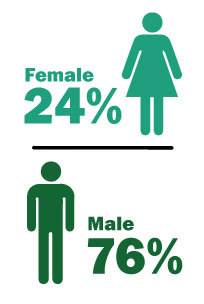
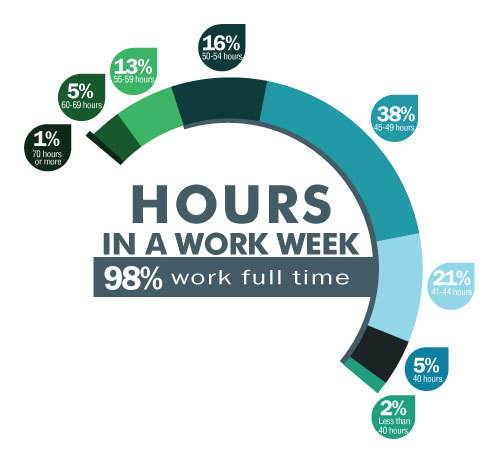
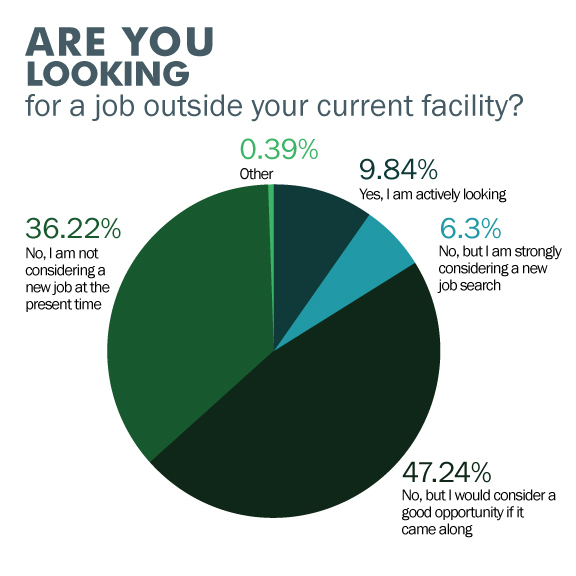
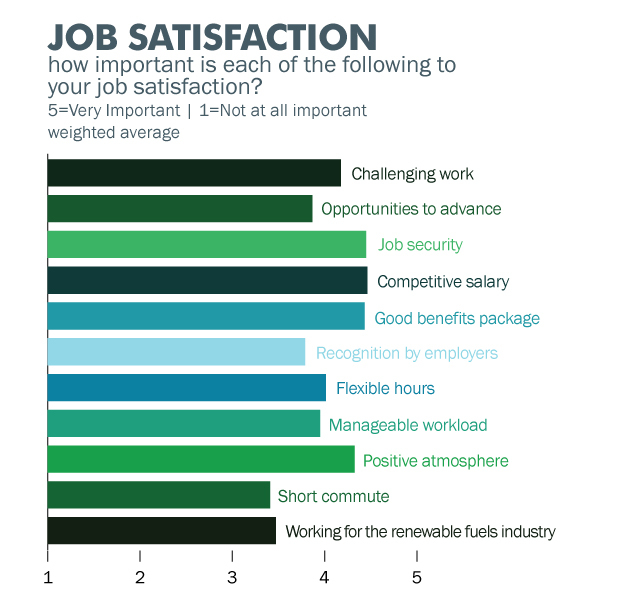
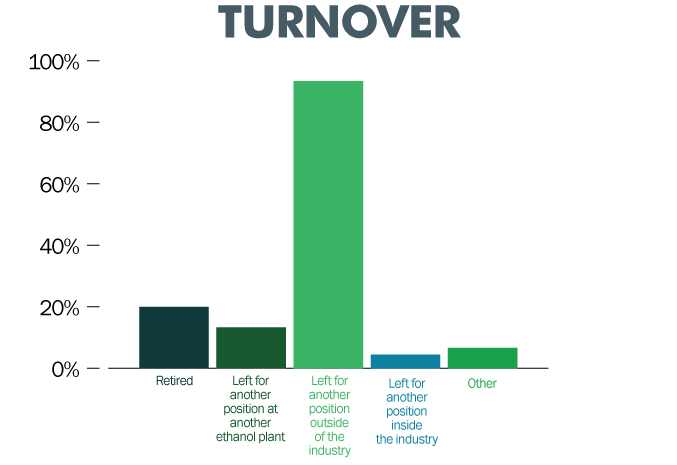
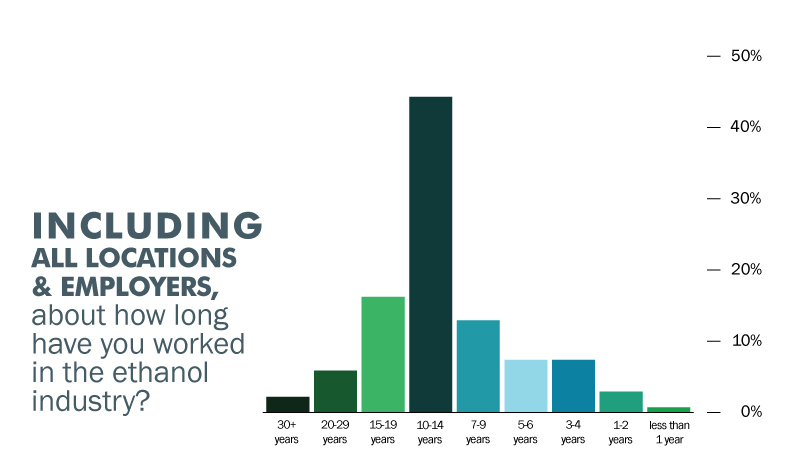
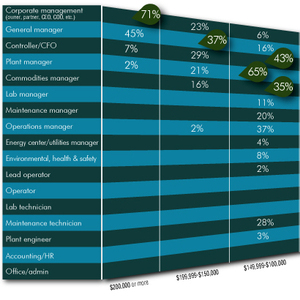
June 20, 2019
BY Lisa Gibson
Seventy-one percent of corporate management personnel in the ethanol industry are earning more than $200,000 per year, along with 45% of general managers, 7% of chief financial officers and 2% of plant managers, according to Ethanol Producer Magazine’s 2019 Salary and Job Satisfaction Survey. On the opposite end of the spectrum, 4% of energy center/utilities managers and 2% of lab technicians are earning less than $30,000. Everyone else falls somewhere in between.
Ethanol Producer Magazine conducts the survey every two years. It’s sent to about 2,000 individuals working at ethanol plants and provides a snapshot of turnover, pay, benefits, key job-satisfaction factors, and more, for the previous 12 months. This year, we asked if respondents had been contacted by a headhunter. Fifty-nine percent said yes. Still, only 2% of managers rated headhunting as a very effective method to fill open positions in their plants; 31% said sometimes effective. Forty-eight percent said promoting from within has been very effective.
Along those lines, about 10% of respondents said they are actively looking for a new job, while about 47% said they’d consider a good opportunity if it came up. Only 11.76% of plants reported no turnover in the past 12 months. Managers said 93% of their turnover was employees leaving for jobs outside the ethanol industry. Twenty-eight percent of managers said they plan to add positions, while 72% have no changes planned to staff size. No managers reported plans to cut positions.
In 2017, about 90% of respondents had received a bonus in the previous 12 months, compared with 83% on this year’s survey. Eighty-four percent of respondents reported a recent raise in 2017, while 77% reported one on this year’s survey. The percentage of plant managers in the $200,000-plus range, at 2%, is down from 5% in 2017. Chief financial officers in the $200,000 range decreased from 13% to 7%, while general managers increased from 39% to 45% and corporate management increased from 60% to 71%.
In 2017, the largest percentage of commodities managers earned $75,000 to $99,000, 34%, while this year’s survey shows the majority, 35%, earning $100,000 to $149,000. Environmental health and safety saw the largest percentage in the $60,000 to $74,999 range in 2017 (38%), but jumped to $75,000 to $99,000 in 2019 (53%). It’s interesting to note that the position had jumped back a bracket in 2017 from 2015. So, while raises and bonuses are down, many overall shifts in salary ranges still show increases.
One large change in 2019 from 2017 results was the percentage of senior managers who have succession plans in place: 41%, down from 60%.
Managers in 2019 reported their workforce’s experience came predominantly from agriculture, at 55.77%, with industrial manufacturing and labor tied for second at 40%. In 2017, managers reported industrial manufacturing as No. 1, followed by agriculture and then labor.
But results show the ethanol industry is content. Compensation aside, 57% of respondents said they’re satisfied with their current positions and 29% said they are very satisfied, while 8% are unsatisfied and 6% are very unsatisfied.
Author: Lisa Gibson
Editor, Ethanol Producer Magazine
701.738.4920
lgibson@bbiinternational.com
Advertisement
Advertisement
Advertisement
Advertisement
Related Stories
Saipem has been awarded an EPC contract by Enilive for the expansion of the company’s biorefinery in Porto Marghera, near Venice. The project will boost total nameplate capacity and enable the production of SAF.
Global digital shipbuilder Incat Crowther announced on June 11 the company has been commissioned by Los Angeles operator Catalina Express to design a new low-emission, renewable diesel-powered passenger ferry.
International Air Transport Association has announced the release of the Sustainable Aviation Fuel (SAF) Matchmaker platform, to facilitate SAF procurement between airlines and SAF producers by matching requests for SAF supply with offers.
Alfanar on June 20 officially opened its new office in London, further reaffirming its continued investment in the U.K. The company is developing Lighthouse Green Fuels, a U.K.-based SAF project that is expected to be complete in 2029.
ATR and French SAF aggregator ATOBA Energy on June 19 signed a memorandum of understanding (MOU) to explore ways to facilitate and accelerate sustainable aviation fuel (SAF) adoption for ATR operators.
Upcoming Events










